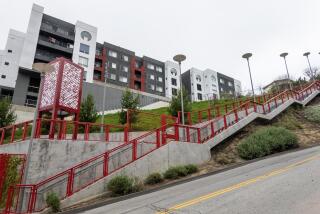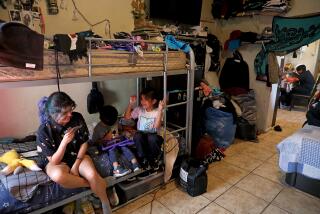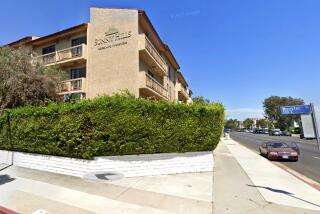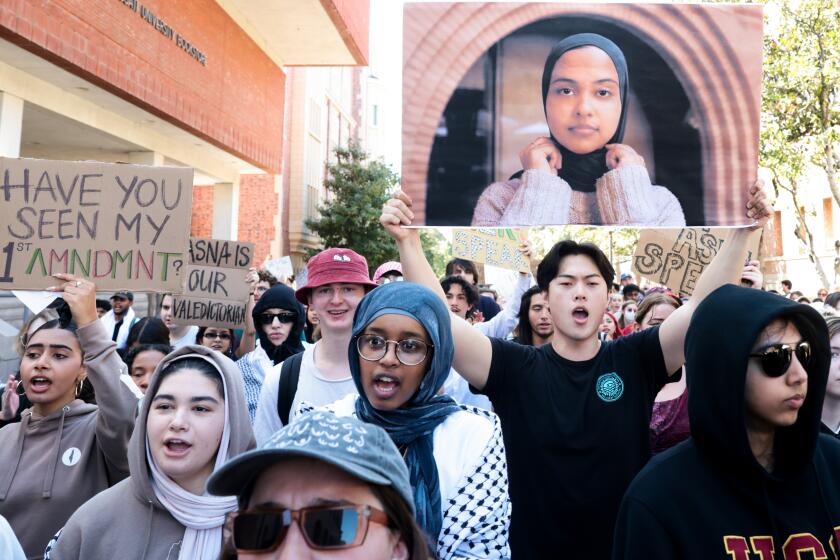For these residents, help with sudden rent hike is a much-needed gift
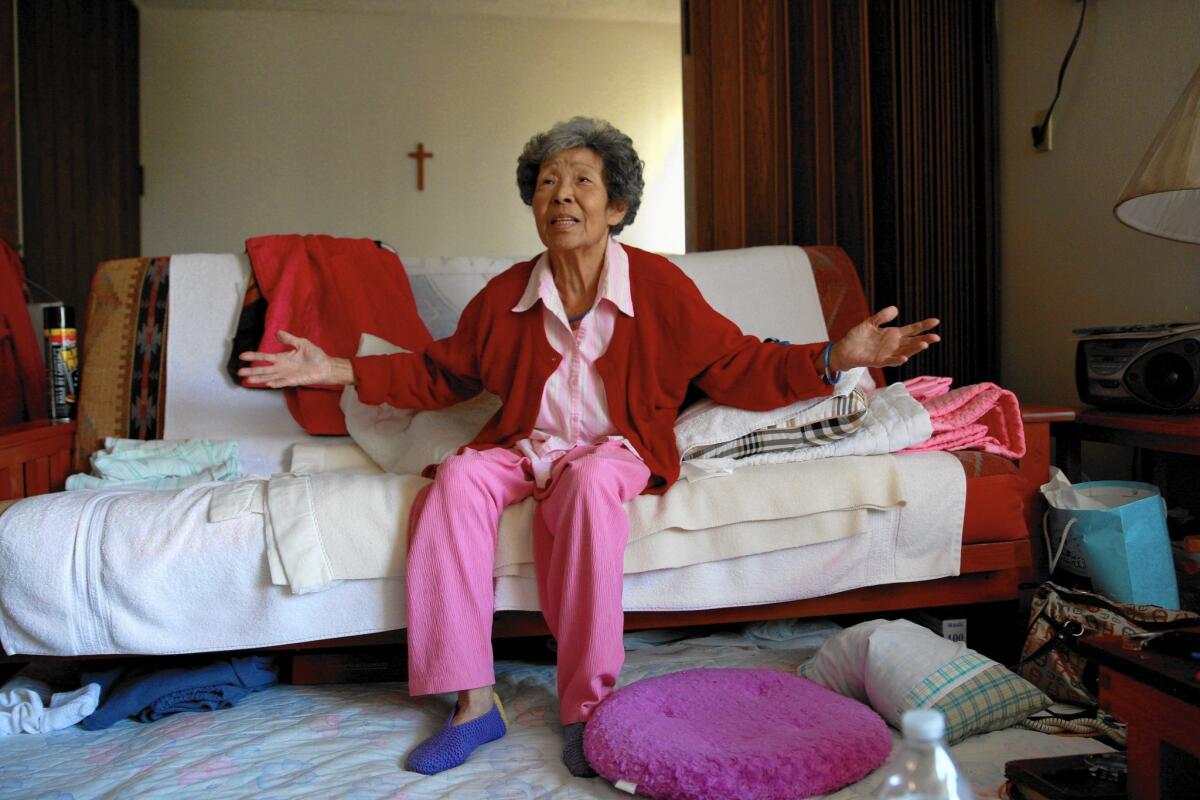
When Yong Woom Wang’s rent shot up nearly 70%, the retired baker tried to slam on the brakes and cut back on expenses.
He stopped driving to save gas. He cut back on the diabetes medicine he was supposed to take. And he kept his monthly food budget to no more than $50, and sometimes far less.
Wang was one of scores of residents — mostly monolingual Koreans living on fixed incomes — whose lives were turned upside down last summer when Miracle Terrace converted from government-assisted affordable housing to a privately owned apartment complex intent on charging market rates.
“There was no reason to celebrate in my life — as that life went from normal to shock,” Wang said.
Now, with the help of two Asian advocacy groups, rents are being rolled back at the 179-unit Anaheim complex.
For nearly a decade, rents at the apartments on South Western Avenue were based on the needs and incomes of residents. But when the new owners came in, rents went up quickly.
Wang, an eight-year resident with a monthly Social Security check of $870, felt the financial pinch immediately after his rent jumped from $350 to nearly $600. So did Song Ae Lavin, one of his neighbors.
“We tried to find a cheaper place to live. But everywhere cost even more,” said the 77-year-old, who suffers from asthma and rheumatoid arthritis and normally spends $400 a month on medication. “So I pray. ‘God, I want to stay here.’ Of course, I pray too for everyone around me.”
One of Wang’s acquaintances rallied help when he saw the financial desperation of his old friend and others at Miracle Terrace.
“I was amazed to see the situation he had fallen in — I felt we must help,” said Michael Jang, a former foreign exchange student from South Korea who met Wang when he owned and operated Cosmos, a bakery in Arcadia.
With assistance from retired U.S. Air Force cargo specialist Peter Kim, Jang enlisted the help of Asian Americans Advancing Justice – L.A. and the Public Law Group in Santa Ana.
Attorneys for the two nonprofits looked for some form of financial aid for the fixed-income residents, but quickly discovered that the waiting list for low-income Section 8 vouchers at the Anaheim Housing Authority was impossibly long, ranging from five to eight years.
But there was an alternative. A little-known, low-vacancy rate voucher, created by the U.S. Housing and Urban Development Department, was available to tenants who lived in residences that had shifted from being government-assisted to privately owned.
Advocates persuaded Miracle Terrace’s owners to apply for the vouchers, though rents remained elevated during the five months it took for the vouchers to come through, said Nicole Gon Ochi, one of the attorneys working for the tenants.
When the vouchers came through last month, rents were rolled back. Tenants were even given retroactive discounts for the months when they paid higher rents. Wang’s rent, for instance, dropped to $259 a month.
Eric Sussman, a partner at Clear Capital, which owns Miracle Terrace, said in an email that the firm was “very pleased” that HUD funding had been secured to help tenants.
Many of the tenants said they plan to toast their turn of fortune with soju, a popular drink, and pork belly.
“I never thought we would see this miracle,” said Wang, who for the first time in month says it may finally be time to celebrate.
Twitter: @newsterrier
More to Read
Start your day right
Sign up for Essential California for news, features and recommendations from the L.A. Times and beyond in your inbox six days a week.
You may occasionally receive promotional content from the Los Angeles Times.

